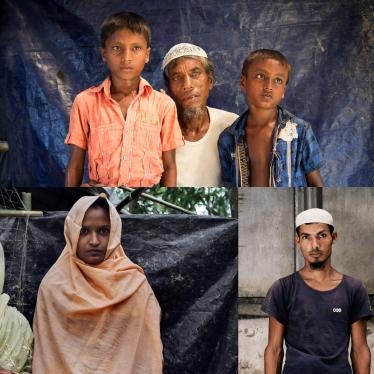(New York) -- The United Nations was right to pull out of negotiations with the Cambodian government over how to bring Khmer Rouge leaders to justice, Human Rights Watch said today, but neither the U.N. nor the Cambodian government should consider the issue closed.
Human Rights Watch urged the Cambodian government to take the necessary measures to bring the proposed tribunal up to international standards so that the U.N. could participate.
"Given the failure of the Cambodian government to address the concerns about the tribunal raised more than a year ago, we feel the U.N. acted appropriately," said Mike Jendrzejczyk, Washington director of Human Rights Watch. "The Cambodian people deserve justice, but at the same high standard as the people of the former Yugoslavia."
The U.N. legal office announced last week that it was withdrawing from further discussions with the Cambodian government over the establishment of a special "mixed tribunal" composed of both Cambodian and foreign judges and prosecutors. A law setting up that tribunal, passed by the Cambodian National Assembly in January 2001 and signed by King Sihanouk in August 2001, had serious shortcomings from a human rights perspective.
One of the most glaring defects of the law is that it could prevent prosecution of senior Khmer Rouge leaders who previously received pardons or amnesties. The Royal Cambodian Government's pardon of former Khmer Rouge Foreign Minister Ieng Sary after he defected in 1996, for example, might be allowed to stand. The U.N. had insisted on a provision that previous pardons or amnesties would not be a bar to prosecutions.
The law also deletes all references to defendants' right to counsel of their choice, thus undermining the possibility that defendants will have proper defense and be allowed access to international counsel. Supporters of the Cambodian legislation argue that this kind of detail can be worked out later. Human Rights Watch believes that the U.N. should not cooperate with a domestic tribunal that does not meet international standards because this will not address Cambodia's need for real accountability for the Khmer Rouge's crimes.
Human Rights Watch urged donor governments to strongly encourage the Cambodian government to promptly demonstrate its willingness to fully meet the criteria laid out by U.N. Secretary General Kofi Annan. In the meantime, donors should not pledge any assistance for a domestic Cambodian tribunal that is not fully independent and impartial.
The Cambodian government has said that it is willing to go it alone, without the U.N. But Japan, the European Union, the United States and other donors have repeatedly said they would only support a tribunal with U.N. involvement.
"Donors should now use their influence to persuade the Cambodian government to cooperate fully with the U.N.," said Jendrzejczyk.






